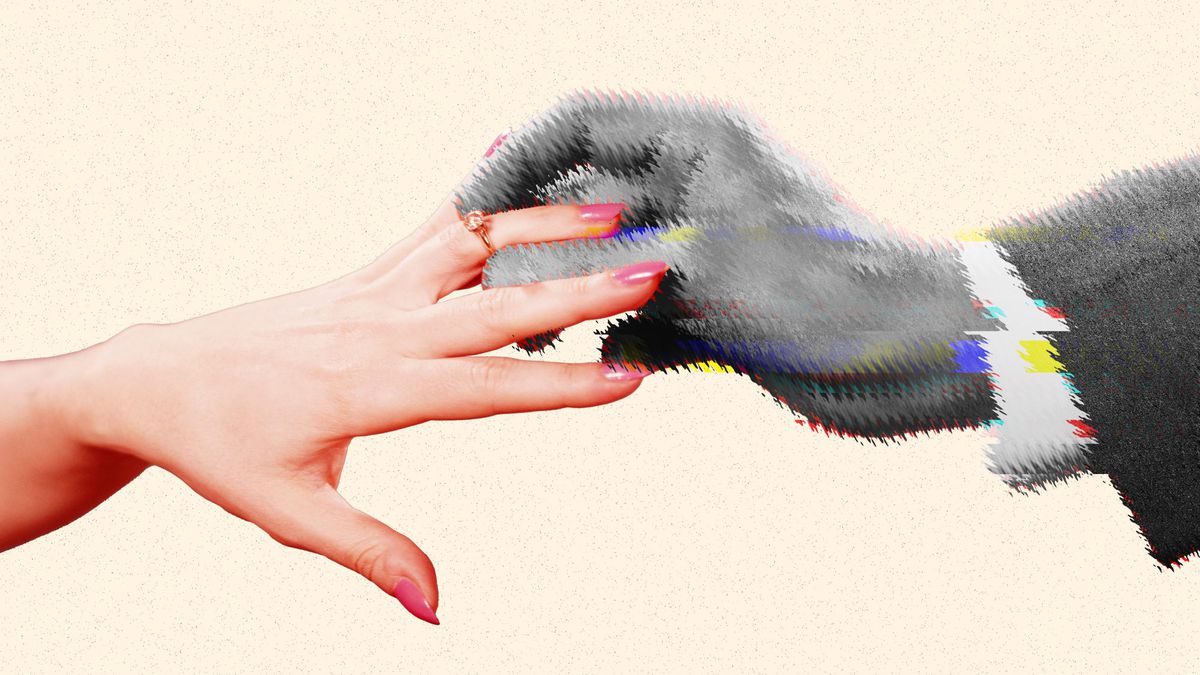
You’re on a date and the person is clearly smitten. It’s clear you’ve been brought together by the universe for a reason, they tell you, and they can see having children with you. And oh, wouldn’t it be great to hop on a plane and go on that bucket-list trip together soon? Like next week?
No, you’re not on an episode of The Bachelor or Bachelorette. It’s real life. And it’s your first or second date. Could this person be “future faking” you? Here’s everything you need to know about this manipulative dating strategy, why it’s a sign you could be seeing a narcissist, and how to avoid becoming a victim.
What is future faking?
“Future faking is when someone uses a detailed vision of the future to facilitate the bonding and connection in a romantic relationship,” Greg Kushnick, PsyD, a psychologist based in New York City, tells Health. It’s generally something that narcissists do, adds Kushnick; it’s their way of getting attention and admiration from you.
On the outside, future faking might seem like you’re experiencing the meet-cute of a romantic comedy. “It’s a charming, magnetic, oxygen-fueled experience,” Dan Sokal, LCSW, a licensed psychotherapist and trained psychoanalyst in New York City, tells Health.
At its root, future faking is meant to be manipulative. “In most situations, it’s not intentional,” says Kushnick. “Many narcissists are very impulsive when it comes to having romantic feelings. And in that impulsivity, they promise someone the world.” (That said, narcissism exists on a spectrum. People who fall into the “malignant narcissist” category can have premeditated motives, he explains.)
So you can’t assume the other person is acting maliciously and trying to fool you; “they actually believe what they’re saying to you to be true during the initial courting period. Until they don’t,” Kushnick says.
If you’re on the receiving end of future faking, you can really suffer emotionally. Because even if it’s not intentional, the end result is that the relationship tends to blow up in painful ways.

CREDIT: GETTY IMAGES / PHOTO ILLUSTRATION BY JO IMPERIO
When to expect future faking
At the beginning of a relationship, there’s a bonding period. It’s at this initial stage where future faking is at its peak. “As the relationship grows, the narcissistic partner begins to lose interest, or the non-narcissistic partner realizes that they’re not getting the empathy and understanding that they’re looking for,” according to Kushnick.
If you begin to pull away, question things, or try to slow down the trajectory, the narcissistic partner will begin to show disapproval or become dismissive. “There’s a coldness that sets in, and that’s when things start to change,” Kushnick says.
That’s a problem because a narcissist doesn’t consider how their actions impact others—they don’t care if the spectacular future they say they want with the other person falls apart and ends up causing deep pain.
Once a narcissist gets past the first stages of the relationship, according to Sokal, for them it can feel as if they’re coming down from a high. That’s when they tend to turn hostile. “In a way, it’s to recalibrate and protect their sense of self and ego,” he says. Creating a visual of perfection is the only way they know how to attach, and once that image is cracked after you start to question things or pull away, well, the façade crumbles.
A narcissistic partner who is future faking will eventually push their partner away and definitely won’t deliver on their promises. You aren’t taking a romantic vacation in Paris. They’re not going to propose under the Eiffel Tower. You two aren’t naming your first baby Archie. “They start to substitute compliments and acts of love with criticism and emotional distance,” says Kushnick. Just as fast as the relationship started, so, too, can it end. You may even get blocked on social media suddenly—and generally have no idea why.
Love is not “future faking” (but the two can look similar)
It’s so easy in the early stages of the relationship to get wrapped up in someone else. The sun really does seem to be shining brighter and the birds really are singing louder, you know? “Love and future faking might initially look the same,” says Kushnick. Here’s how to tell them apart—so you can take a step back and reassess the relationship:
The other person is moving way too fast
It’s one thing to daydream with your partner about, say, taking them to Greece because you loved it there—a sort of, “wouldn’t it be great if I could show you around?” type chat. It’s another thing for someone to say I love you on the first date or after the first week, or suggest you get married. It’s all too quick for comfort. “A relationship is slow steps that build into one another. There’s give-and-take,” says Sokal. “Future faking throws things into hyperdrive and is blinding and almost like a gaslighting of romance. It takes reality and turns it into a cliché.”
It feels like a fairy tale
The narcissistic partner might express that something about your relationship or meeting is mystical. “They talk about the bewitchment of a relationship and might say that they’ve never had anything like this before,” explains Sokal. “They paint a Norman Rockwell image without reality.”
They don’t accept responsibility
If you two were to get in an argument, would they take responsibility for their actions and apologize? A narcissist will put the blame on you. “They see things with black and white thinking or a right versus wrong way,” Kushnick says. “If they tend to blame the world or other people for their problems, consider that you’re on a path to a painful ending,” he says.
You feel isolated
Love is thrilling, but it also honours your pre-relationship life. There’s excitement in romance and love, but if it means abandoning your life prior, that’s a red flag, says Sokal. Your partner should never try to convince you to leave your job, stop seeing family or friends, or move in with them abruptly.
Can a future faker change?
On the shallower end of the narcissism spectrum, a narcissist might simply be self-centred and egotistical, and a commitment to therapy can help. But for someone who has a narcissistic personality disorder, for example, the road is much tougher. “I like to say that there aren’t that many former narcissists,” says Kushnick. “It’s hard work to bring them to a place to see how their actions impact people and get them to show empathy for the emotional world of another person.”
If you think you’ve been future faked
The first step is to know what it is and be able to identify it. If you recognize these signs of future faking in your partner and are feeling the ramifications, including a loss of happiness and joy or depression, then it’s a good idea to leave the relationship, even if it causes pain and anger. Better to cut things off sooner rather than later. Says Sokal: “Love takes work, but it does not require an entire sacrifice of one’s self.”

